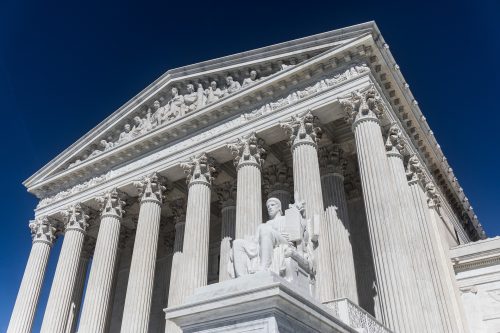Support for LGBTQ+ Employees -
Wasn't This Already the Law?

On June 15th, 2020, the U.S. Supreme Court ruled that LGBTQ employees were protected from discrimination under Title VII of the Civil Rights Act of 1964.
“Weren’t LGBTQ employees already protected?” The answer depends on where you live. In Michigan for example, there is no state statute providing these protections. Many local municipalities including Kalamazoo, Battle Creek, and Portage, passed local ordinances banning LGBTQ discrimination. In the recent past, employers located in an area not covered by a local ordinance could still fire or refuse to hire an employee based on LGBTQ status, whether real or perceived.
Surprised? This is where it gets even more confusing. Title VII protects employees from discrimination based on their race, color, national origin, sex, and religion. It was only recently that the EEOC started interpreting the definition of “sex” under Title VII to include LGBTQ status. Depending on your location and the interpretation of local courts, the EEOC would pursue some cases of LGBTQ discrimination, but not all.
This ruling determined that sex, as a protected category, directly applies to issues of discrimination based on sexual orientation and gender identity. By protecting employees from discrimination based on sex, the intent of Title VII includes protections for employees from discrimination based on sexual orientation and gender identity. This new standard will apply consistently across the U.S.
For most employers this will not be a significant change, in fact, it has been years since we’ve written a handbook that did not include LGBTQ protections, but you might want to check yours just in case.
Questions? Give us a call, we’re always happy to help!
Interested in more?

Securities and Investment Advisory Services Offered Through M Holdings Securities, Inc. A Registered Broker/Dealer and Investment Advisor, Member FINRA/SIPC. Rose Street Advisors is independently owned and operated.
Please go to www.mfin.com/DisclosureStatement for further details regarding this relationship.
Check the background of this Firm and/or investment professional on FINRA’s BrokerCheck.
For important information related to M Securities, refer to the M Securities’ Client Relationship Summary (Form CRS) by navigating to mfin.com/m-securities
Registered Representatives are registered to conduct securities business and licensed to conduct insurance business in limited states. Response to, or contact with, residents of other states will only be made upon compliance with applicable licensing and registration requirements. The information in this website is for U.S. residents only and does not constitute an offer to sell, or a solicitation of an offer to purchase brokerage services to persons outside of the United States.
This site is for information purposes and should not be construed as legal or tax advice and is not intended to replace the advice of a qualified attorney, financial or tax advisor or plan provider. CA Insurance License. File #5757992.1

